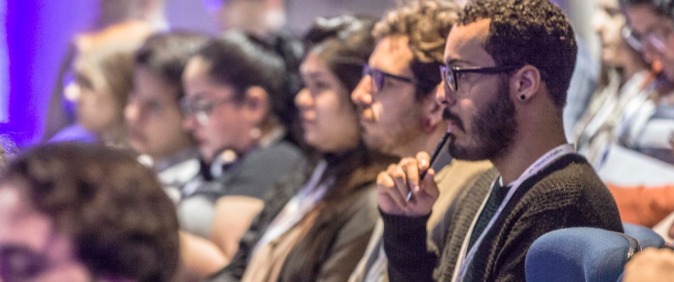- About
- Topics
- Picks
- Audio
- Story
- In-Depth
- Opinion
- News
- Donate
-
Signup for our newsletterOur Editors' Best Picks.Send
Read, Debate: Engage.
| January 14, 2019 | |
|---|---|
| topic: | Freedom of Expression |
| tags: | #Bosnia and Herzegovina, #Serbia, #freedom, #political pressure, #violence |
| located: | Serbia, Bosnia and Herzegovina |
| by: | Katarina Panić |
Translated from the administrative language into the one of reality, it sounds a bit crueller. Let’s see how the lack of progress on freedom of expression looks in everyday life in these Balkan countries.
At least two demands of thousands of protesters marching through the Serbian capital Belgrade for the anti-government rally in the last five weeks are related to media freedom.
Firstly, they ask for an investigation into the attempted murder of Serbian website Žig Info journalist Milan Jovanović whose home was burned down in the Belgrade suburb on December 12, 2018. The police arrested three suspects for the setting fire to his home and garage, but he believes they are perpetrators only and someone else commanded the murder because of his reporting on local corruption. Later that month Jovanović reported attempted burglary at a place in Belgrade he rented after his home was torched.
Secondly, they request five minutes for protest representatives in the main news on the public broadcaster, RTS, and the regular presence of opposition politicians on RTS. That is because it used to happen the public broadcaster haven’t covered protests at all and because of absolute dominance of President Aleksandar Vučić and his ruling Serbian Progressive Party in the media compared to all the other actors in Serbian political life. There is only some reporting in small independent outlets about the way Vučić took remote control of all the mainstream media in Serbia since he came to power in 2012, by controlling the mechanisms of the money flow towards the media.
“The independence of the Regulatory Body for Electronic Media (REM) needs to be strengthened to allow it to safeguard media pluralism. (…) The REM failed to address imbalances in media coverage of the 2016 presidential campaign. (…) Political and economic influences over media result in widespread self-censorship. Statements by high-ranking state officials on the investigative work of journalists have not been conducive to creating an environment where freedom of expression can be exercised without hindrance. (…) Public services should more actively engage in opening their programmes to a plurality of views and promoting public dialogue”, read key findings of the 2018 European Commission Report on Serbia.
A popular Serbian actor Sergej Trifunović is one of the harshest critics of the government. His play “Drowned Souls” was thrown out of the repertoire just two days before it was planned to be performed at the theatre festival in Serbian town Aleksinac in November 2018.
Official explanations said the performance was not banned but it had been cancelled because of a potential conflict of interest since Trifunović's father Toma is the artistic director of the festival. Toma Trifunović resigned afterwards, saying he believes the real reason is because his son “insults the leadership of the Serbian Progressive Party”. Some viewers returned their tickets, not accepting substitute performance. Popular Serbian director and screenwriter Sinisa Kovačević returned the prize he received a few years ago at the very same festival. The greatest applause and the longest standing ovations went to Sergej Trifunović whose picture was shown on video beam after one of the performances during the latest festival.
An exhibition by famous Serbian cartoonists Predrag Koraksić Corax and Dušan Petričić was removed the day after it was officially open in November 2018 in Serbian town Lazarevac library. It was the day after the daily newspaper “Danas” published Corax’s caricature with Adolf Hitler and Joseph Goebbels bottle-feeding members of the Serbian Progressive Party Aleksandar Martinović and Vladimir Orlić. These MP’s accused the newspaper on national parliament a few days earlier for “haranguing against the SNS and innocent people”, which has been “unrecognised since the time of Goebbels and Hitler”, called the daily “Danasoid” and told their reporters are “the disgrace for Serbian journalism”.
Similar to Serbia, Bosnia and Herzegovina has same postcommunism recidivism: if someone is against the current government, it automatically means they are against a state in a whole. If someone is dedicated to keep an eye on every move of the authorities and to criticise the wrongdoings, they are considered domestic traitors, foreign mercenaries, agents, spies and false media. Politics is one who creates a climate of uncertainty the most.
“Authorities do not collect data on threats and attacks against journalists and media workers, and swift investigations and prosecution of perpetrators is not always ensured”, read key findings of the 2018 European Commission Report on Bosnia and Herzegovina.
Police in Bosnian's Serb-led entity Republika Srpska had arrested one suspect over the attack on the journalist Vladimir Kovacevic who was assaulted on August 26, 2018. The suspect is still in custody, another attacker is still at a run and the investigation is still on. Kovačević was beaten with metal bars as he returned home from reporting on a demonstration that called for government accountability in Republika Srpska’s administrative centre Banja Luka. The crime is qualified as attempted murder.
Republika Srpska’s leading party Alliance of Independent Social Democrats (SNSD) and its leader Milorad Dodik, current chairman of Bosnia’s tripartite Presidency, have long been openly hostile toward journalists and the media, especially Kovačević’s employer BN TV. They label them as an “enemy” television station and a “factory of lies”. They also accuse all critical journalists of working against the country’s interests.
By copying the embed code below, you agree to adhere to our republishing guidelines.

